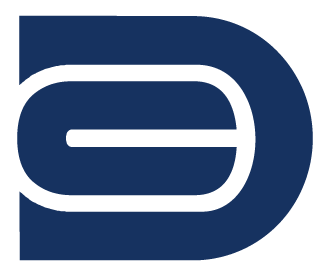Smarter, Faster, Better? How AI Startups are Transforming Industries
Artificial Intelligence (AI) is disrupting traditional ways of working. Each year the renowned research company CB Insights publishes their AI 100, a list of start ups making significant impacts across sectors [1]. In this blog post we highlight startups that are making an impact on the defence, construction and healthcare sectors.
Defence Sector
AI startups are advancing the defence sector. For example:
Quantum Systems develops AI-powered aerial surveillance drones that enhance situational awareness for both military and commercial use. In addition, Shield AI has created autonomous flight systems that allow aircraft and drones to operate without GPS, communication, or human pilots.
Helsing uses AI to enhance military decision-making, helping defence teams detect threats and respond more quickly to challenging situations. The Defence Secretary John Healey recently announced that Helsing has invested £350 million into developing AI systems within the UK [2].
Construction Sector
In the construction sector AI is streamlining processes and improving efficiency. Two key startups pioneering the use of AI in construction include Canvas and Monumental.
Canvas have created an AI-driven robot that automates drywall finishing. The robots, although human controlled, are already being utilised by three leading general contractors in California [3].
Monumental have developed autonomous construction robots that are able to complete labour intensive processes at a continuous pace. The UK consistently falls short of its housing targets due to a shortage of bricklayers. Monumental aim to utilise their robots to increase the number of affordable homes built. Monumental have raised $25 million in funding by venture capital firms and angel investors [4].
Healthcare Sector
In the healthcare sector AI companies are transforming operational efficiency and patient care. For example:
OpenEvidence offers a platform that summarises medical records in an accessible format, allowing healthcare professionals to make efficient and well-informed decisions. In 2023, OpenEvidence were the first AI company to score over 90% on the US Medical Licensing Exam. The platform was 77% more accurate than ChatGPT and 24% more accurate than GPT-4 [5].
Gesund.ai utilises AI to provide 3D annotation and complex medical imaging of ophthalmology slides and PET scans. This allows medical professionals to detect blind spots and prevent bias detection. Gesund.ai’s clients reported that utilising their service was four times more efficient and two times lower in cost compared with in-house studies [6]. In addition, Gesund.ai is utilised by Quality and Regulatory teams to ensure AI development is in compliance with FDAs GMLP, PCCP and IS042001 standards. This is vital in the healthcare industry, as safety and confidentiality cannot be compromised.
Cross-Sector Applications of AI
Across all sectors, AI is being utilised to boost productivity, streamline tasks and lower overheads. For example:
Writer AI helps companies to build their own AI stack so that they can focus more time on the workflow rather than on maintaining the infrastructure. It also allows companies and those without a technology background to adopt AI quickly. Writer AI claim to be 67% lower in cost than their competitors [7].
Pryon is a data storage and retrieval solution, that allows companies’ data to be stored and accessed efficiently. Ema has developed a product that allows companies to automate internal operations such as customer support, data analytics, and compliance analysis to allow them to optimise processes and reduce overheads.
Future of AI
As startups continue to develop innovative AI-solutions, companies can increasingly benefit from these tools. At Deecon, we identify and implement technologies to enhance our clients operations, increasing both productivity and efficiency.
Words by Aaliya Samuel
Edited by Anna Pringle

